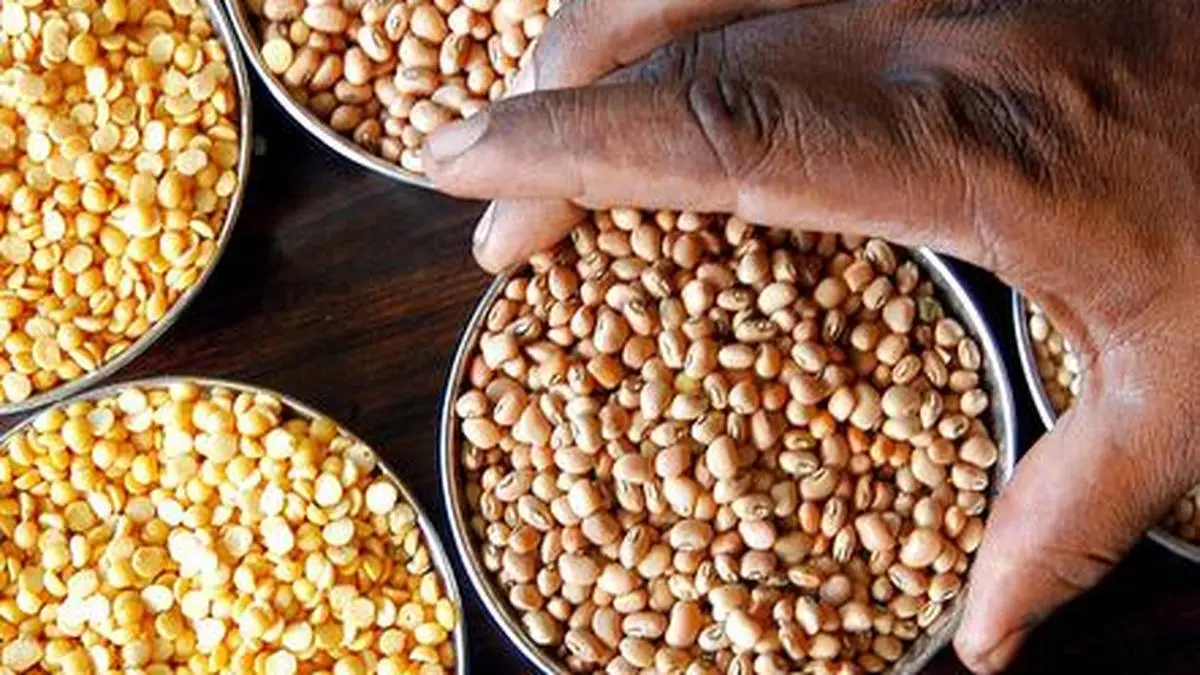The procurement of oilseeds and pulses at the minimum support price (MSPs) is yet to start despite the government approving it a month ago. While the official reason preventing the procurment agencies could likely be high moisture content, farmers who have sold over 9 lakh tonnes (lt) of five key crops since September 24 have not benefitted due to the delay.
The Centre has approved procurement of tur (pigeon pea), urad (black matpe), moong (green gram), groundnut, soybean and sesame at their respective minimum support prices (MSPs) from farmers in Uttar Pradesh and Gujarat. The estimated expenditure may be around Rs 13,890 crore. Later, the Centre also approved procurement of moong in Karnataka.
Bhavantar scheme approval
While requests for approval of oilseeds and pulses from Telangana and Andhra Pradesh are under process, Maharashtra and Rajasthan have also requested the Centre to allow procurement, sources said, adding that groundnut purchase is likely to start in Gujarat from next week. The Centre is also yet to approve the request of Madhya Pradesh government to allow Bhavantar scheme for Soyabean, the sources added. Agriculture Ministry officials could not be contacted.
The Agriculture Ministry had directed Nafed and National Cooperative Consumers Federation (NCCF) to buy only from pre-registered farmers.
Madhya Pradesh Chief Minister Mohan Yadav on September 26 announced that the State government would implement Bhavantar Yojana for the soybean crop this year under which farmers were supposed to be paid the “differential” amount between market price and the minimum support price (MSP).
Union Agriculture Minister Shivraj Singh Chouhan approved the procurement of major pulses and oilseeds in Uttar Pradesh and Gujarat for the kharif 2025–26 season, the Agriculture Ministry said in a statement on September 23. Chouhan assured the States that the approved quantity would be reviewed, if required, after the first advance estimates of kharif 2025–26 are released. He told the States to ensure only genuine farmers get the MSP benefit and middlemen must not take advantage.
Mandi arrivals
According to the Agmarknet portal, the all-India mandi (agri market yard) arrivals between September 24 and October 22 were 39,367 tonnes of tur, 47,008 tonnes of urad, 1.10 lt of moong, 5.76 lt of soybean and 1.36 lt of groundnut.
“Though the government does not procure in every State, but when the MSP operation starts in major growing States, it also influences farm-gate prices across the country, helping farmers to realise better prices,” said a former senior official.
Out of the total arrivals of soybeans, Chouhan’s home State, Madhya Pradesh, has witnessed 3.42 lt and Maharashtra 1.52 lt. Similarly, over 93,000 tonnes of moong have been sold in Rajasthan’s mandis since September 24, data show.
The average mandi prices were ₹6,069/quintal in urad (22 per cent below MSP), ₹6,466/quintal in tur (19 per cent below MSP), ₹6,525/quintal in moong (26 per cent below MSP), ₹3,909/quintal in soybean (27 per cent below MSP) and ₹5,350/quintal in groundnut (26 per cent below MSP). The soybean farmers of MP are getting ₹100/quintal and ₹300/quintal less than rates at which farmers are selling in Maharashtra and Rajasthan, respectively.
The Centre approved 100 per cent of production of farmers to be procured at MSP in case of urad and tur, 25 per cent cap was applicable on moong, sesame, soybean and groundnut. As per the procurement scheme PM-ASHA, Nafed and other nodal agencies are allowed to procure and the Centre reimburses the losses when these crops are sold later in the market.
Published on October 23, 2025
